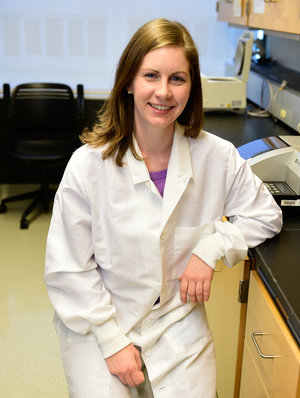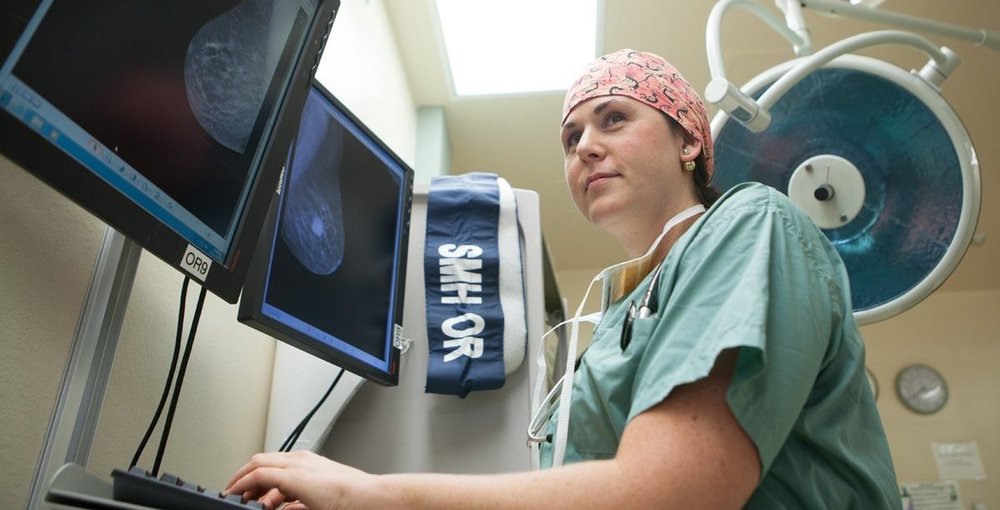Florian Bentzinger, PhD
Université de Sherbrooke
Niche regulation of muscle stem cell specification

Skeletal muscle tissue is maintained and repaired by muscle stem cells (MuSCs), which are regulated by external signals in their “niche,” the microenvironment in which they reside. Changes in niche signals that negatively affect stem cell function occur in degenerative diseases of muscles, and in aging and diabetes. To understand the role of the MuSC niche in the context of aging, Dr. Bentzinger’s research team examined the effects of aging on regulatory cells and discovered an aging defect in a fibroblastic muscle resident cell population that is a key regulator of MuSC function. His work also showed that altered signals from these cells contribute to MuSC dysfunction and that this mechanism can be targeted to rejuvenate muscle tissue. Dr Bentzinger’s group continues to study the role of regulatory signals in the MuSC niche, with the goal of developing novel stem-cell-based treatments to restore or preserve healthy muscles.
Catherine Larochelle, MD, PhD
Université de Montréal
Molecular mechanisms underlying T lymphocytes interactions with oligodendrocytes in neuroinflammation

In multiple sclerosis (MS), there is an abnormal response of immune cells. This inflammatory response injures oligodendrocytes, the cells that support and insulate neurons, leaving neurons vulnerable. Dr Larochelle’s research team previously discovered that certain immune cells, T lymphocytes, directly interact with oligodendrocytes. To understand this interaction, Dr Larochelle’s team used biophysical technology to identify the cell adhesion molecules present on oligodendrocytes and showed that the expression of these molecules is increased in neuroinflammatory conditions. Her work to further characterize T lymphocytes interactions with oligodendrocytes continues towards the aim of understanding immune-mediated oligodendrocyte injury in MS.

Jennifer Gordon, PhD
University of Regina
HPA axis dysregulation in the etiology of perimenopausal depression
Women are 2-4 times more likely to develop depression during perimenopause than at any other time in their lives. Dr Gordon hypothesized that increased estrogen fluctuation during this menopause transition phase may trigger dysregulation of the body’s central stress response system, causing women to be more susceptible to depression. To test this hypothesis, Dr Gordon’s research group monitored and surveyed 100 perimenopausal women. Preliminary results show that there is a large amount of individual variability in terms of how women respond emotionally and biologically to hormonal fluctuation in the menopause transition. Her work continues with the aim of further understanding the effects of the hormonal environment on women’s risk for depression.
Gareth Lim, PhD
Université de Montréal
Evaluating the therapeutic potential of 14-3-3ζ for the treatment of obesity

Current therapies for reducing body weight are only modestly successful, and none directly target fat cells, which are key in the development of obesity. Fat cells require a complex roadmap of signals to grow. How these signals are coordinated is not known, but molecular scaffold proteins could be key players. The 14-3-3ζ scaffold protein plays an essential role in the growth of fat cells, which raises the possibility of targeting it to treat obesity. Dr Lim’s research team explored how obesity influences the types of molecules that interact with 14-3-3ζ. By Identifying how these proteins control the growth of fat cells, this work will help to increase our understanding of the processes behind the development of obesity. Furthermore, these proteins may also represent potential therapeutic targets for treating obesity.
Adena Scheer, MD
University Of Toronto
Cross-cultural communications in breast cancer treatment

Breast cancer is a delicate diagnosis with multiple surgical treatment options to discuss, many of which are preference-based decisions. To understand how cultural and language barriers affect these decisions, Dr Scheer’s research team conducted in-depth interviews with patients and health care practitioners. This foundational work showed that there is a clear inequity in the shared decision making process for immigrant women around the type of breast cancer surgery they should have. Multiple barriers to shared decision making have been identified including language, resource availability, and the use of family members as translators. These findings will ultimately be used to develop decision-support tools culturally tailored for immigrants diagnosed with breast cancer in order to reduce communication-related health inequities.

Julien van Grevenynghe, PhD
Université du Québec
Autophagy regulates CD8 T-cell killing activity during chronic HIV-1 infection
Persistent HIV-1 infection is associated with elevated inflammation that drives metabolic and molecular deregulations. In order to restore proper memory CD4 T-cell (Mem) survival in persistently-infected patients, Dr. van Grevenynghe’s research group is targeting sustained increased interferon type I (IFN-I) signaling among these cells. His team determined that blocking IFN-I pathways using specific antibodies in patients leads to a significant improvement in both cell resistance to programmed cell death and long-lasting cell maintenance. Further, these treatments improve Mem survival by inducing the activation of AKT signalling. His work continues with the aim of further identifying new molecular targets in attempt to enhance Mem survival and function during persistent HIV-1 infection.


